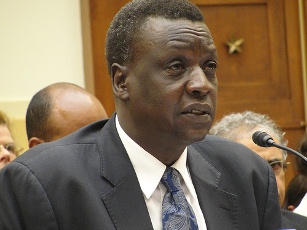Experts call for isolation of anti-peace elements in South Sudan conflict
September 22, 2016 (JUBA) – Different experts testifying on Tuesday before high ranking legislators in the United States Senate on Foreign Relations have unanimously recommended and approved isolation of “anti-peace elements” in South Sudan conflict.

Deng explained that the voices of the anti-peace elements, who he did not mention by names, became very clear in government as they started even undermining the reconciliatory positions of the President towards friends of South Sudan, saying this was clearly stated in his recent speech in the parliament and his meeting in Juba with members of the UN Security Council.
“These elements are driven more by wartime vendettas and narrow self-interest. They have actively encouraged conflict ever since. When the big tent collapsed along the old dividing lines it became obvious that the Government of South Sudan includes some officials who are working hard to implement the Agreement, some who are undecided; and others who are against the peace because it doesn’t serve their agenda,” Deng, a former minister for presidential affairs in South Sudan, told the U.S. Senators on Tuesday.
“In terms of achieving the much-needed environment of political will, the challenge is to strengthen the supporters of peace, win over the undecided and isolate the anti-peace elements,” he added.
Meanwhile Kate Almquist Knopf, Director, Africa Center for Strategic Studies, U.S. Department of Defense, said president Salva Kiir and his main political rival and former deputy, Riek Machar, can be peacefully excluded from South Sudan’s political and economic life if they see the walls closing in on them and are offered a pathway that ensures their physical safety outside the country.
This exclusion, she said, “will require a sufficiently robust package of disincentives for their opposition to the transitional administration. Such a package could include the credible threat of prosecution by the ICC or the Hybrid Court envisioned (but stalled) under the current peace agreement, the imposition by the UN Security Council of time-triggered travel bans and asset freezes, pre-emptive contract sanctions to cast a shadow on the validity of oil and other resource concessions by Kiir’s regime, and a comprehensive UN arms embargo, which is long overdue.”
She claimed that the exclusion of Kiir and Machar from the transition would defuse much of the “impetus to continue the war” or to oppose a transitional UN and AU administration among the Nuer, Dinka, and other forces fighting for revenge, retribution, or in self-defense.
“UN and AU administration would also provide assurances to all sides that they would not be excluded and therefore could participate in the national political process,” the U.S. defense official said.
The US official said South Sudan as a country has ceased to exist after failing to virtually carry her sovereign responsibility, providing a ground for international administration.
“South Sudan is not on the brink of state failure. South Sudan is not in the process of failing. South Sudan has failed, at great cost to its people and with increasingly grave implications for regional security, including the stability of important U.S. partners in the Horn of Africa,” she argued.
“South Sudan has ceased to perform even the minimal functions and responsibilities of a sovereign state. The government exercises no monopoly over coercive power, and its ability to deliver public services, provide basic security, and administer justice is virtually nonexistent. While the Kiir regime may claim legal sovereignty, in practice domestic sovereignty is entirely contested and discredited,” she added.
She further held President Kiir’s administration responsible for refusing to comply and fully implement key provisions of the peace agreement, asserting that the regime has effectively learnt how to buy time instead of acting.
“Indeed, Kiir’s regime demonstrates regularly that it has learned the worst lessons from Khartoum—to buy time, to obfuscate and deny the gravity of the humanitarian and human rights crisis, to take three steps back and then a half step forward, confusing the international community and deferring any consequences,” she further explained in a testimony obtained by Sudan Tribune.
She accused President Kiir of working to strengthen “Dinka domination” over other ethnicities in South Sudan, adding it would be better to place South Sudan under trusteeship of the African Union and the United Nations for a number of years.
(ST)
